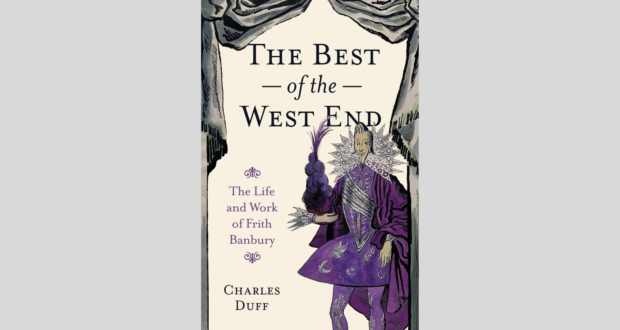The Life and Work of Frith Banbury
An alternative take on early 20th Century British Theatre history that gives readers more insight than a mere trip down memory lane.Summary
Rating
Good
The pandemic has prompted plenty of soul-searching amongst theatre folk. As well as considering a myriad of possible new futures, some of us have been looking back. There is a desire to, perhaps, take solace in nostalgia, to lick our wounds and retreat to romanticised golden days in response to our troubles.
This is the notion that crossed my mind as I launched into Charles Duff’s book, The Best of the West End: The Life and Work of Frith Banbury. As a result, I was expecting warm and witty anecdotes about the glamorous showbiz types of Shaftesbury Avenue, all having a frightfully good time on the latest Noël Coward production. More fool me. Duff’s writing is much more rigorous in its approach than that and it quickly became pleasing to dig into a weightier, more nourishing work than I had imagined.
Previously published as The Lost Summer: The Heyday of the West End Theatre back in 1995, this version enjoys updated text throughout and a comprehensive new epilogue. Its central argument, however, remains the same. Duff challenges the popular myth that the Royal Court, the angry young men movement and, later, Joan Littlewood saved a staid dwindling British theatre scene from itself. He points out, quite reasonably it seems, that the commercial West End industry of the 1930s, 40s, and 50s was largely thriving, thank you very much. Even the small matter of World War II couldn’t really slow it down.
This is where you might part ways with our author. Lessons about life amongst theatre’s maverick underdogs are, you might feel, more useful, and certainly more dramatically interesting, to us than the status quo. You may, for example, feel less inclined to give your time to establishment figures such as Dames Evans and Thorndike who prominently featured in an early photo. More specifically, Duff asks us to commit a lot of time to actor and director Frith Banbury. Banbury, who died in 2008, gives the book its subtitle and seems to have had a finger in all the important pies of the period.
Fortunately for Duff’s book, Banbury is quite the character. His varied, illustrious career forms the basis of a loose narrative taking us through RADA training, a 1933 stage debut, well-reviewed performances, subsequent directing and management roles and, in between, plenty of gambolling around the members’ clubs and small private theatres that made up the West End village of the day.
Is the book, then, a biography full of name dropping and gossip? Partly. Is it a work of scholarly history? Not quite. A critical review? Academic? Thanks to a slightly confused form, one is forced to answer ‘all of the above’, which I can imagine frustrating literary types. Duff’s writing feels solid and crafted, but not necessarily easy to fly through. My tip would be book in some time to concentrate.
Despite there being little in the way of startling revelation to this story of the West End of yesteryear, The Best of the West End: The Life and Work of Frith Banbury is a rewarding read as it shares the historic record of an underrepresented time and place in satisfying detail. Ultimately, this proves to be much more memorable than a simple exercise in nostalgia.
Written by: Charles Duff
Published by: Zuleika Books
The Best of the West End will be published on 24 February 2022, and available from all good book sellers.
 Everything Theatre Reviews, interviews and news for theatre lovers, London and beyond
Everything Theatre Reviews, interviews and news for theatre lovers, London and beyond



